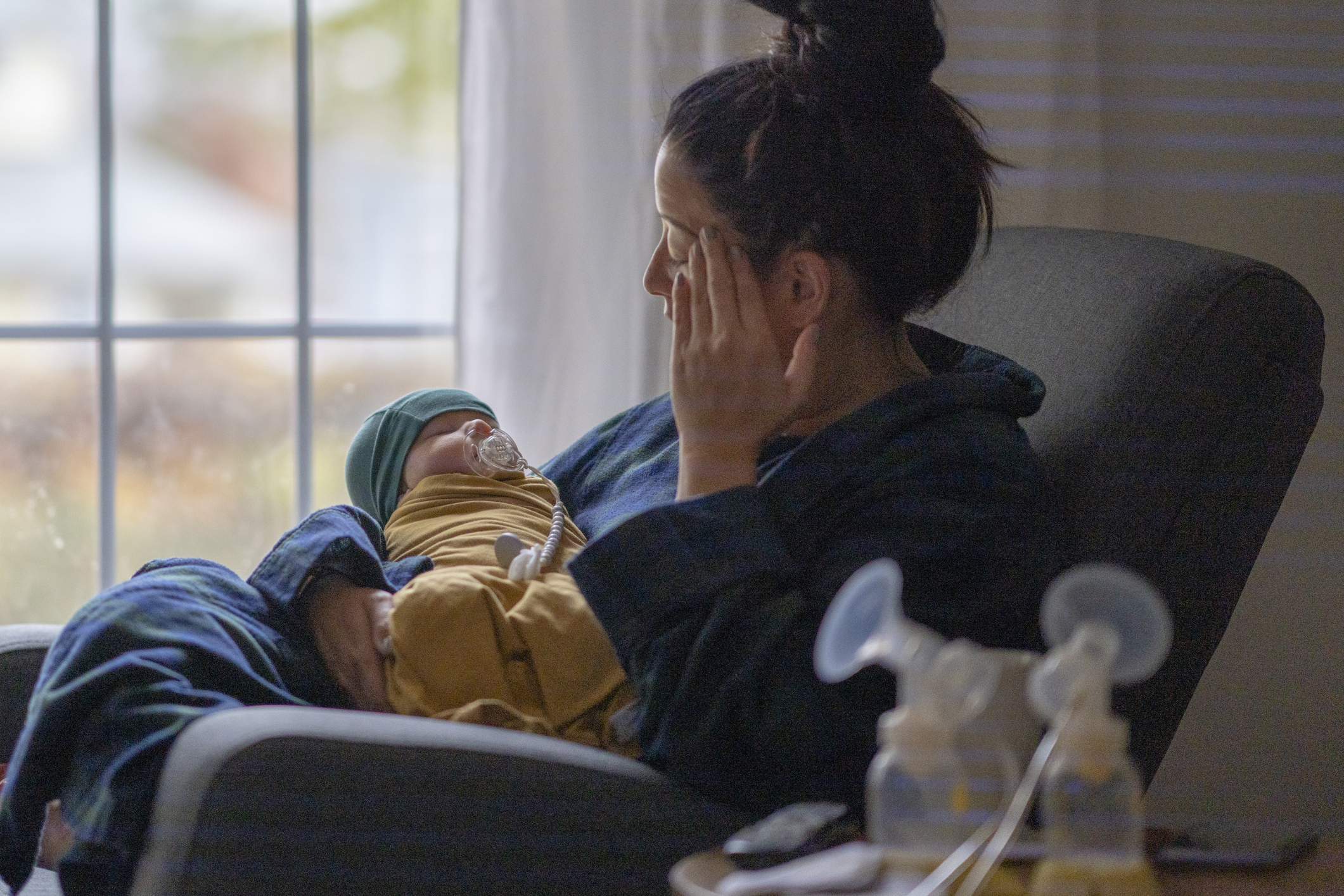It’s been more than 12 years, but I still remember the helplessness I felt holding my son as he wailed, red-faced. I’d tried everything. He was fed, burped, clean. There was no pokey thing in his sock. He just cried. I think he cried more than he didn’t for three whole months. I broke down one morning and said to him, “Great. Now we’re both crying.”
Around that same time, on a random Sunday at church, my frustration shifted to a well-intentioned acquaintance when she asked, “Is he a good baby?” I didn’t know what to say. Of course he is. He’s three months old! But is he sleeping well, cooing, and bringing me all the joy I expected to feel? No. He is not. If you feel the same frustrations, first, remember your baby is “good,” and then try responding to the well-meaning church ladies (and your inner voice) in these 4 ways.
1. “Yes! He’s a gift to our family.”
A fussy baby can bring you and your husband together like two soldiers in a foxhole. You’ve marched to battle, diapers and burp cloths in hand, and survived (at least so far). Your older children are being given chances to grow in patience and helpfulness, and they’re earning high fives and stickers left and right.
All swaddled up and unable to speak, this little one has still managed to bless the lives of everyone in your home. I’d say that’s a good baby!
2. “Yes, because we love a challenge!”
When people ask if your baby is a good baby, what they mean is “Is he an easy baby?” No baby is easy! Babies need us to keep them alive, and that’s strenuous. Every day is different from the one before while also, somehow feeling exactly the same. It’s unpredictable monotony, and it’s enough to drive you crazy.
But you are uniquely equipped for this challenge. We rarely grow when we’re not being stretched or made uncomfortable. Your baby will build resilience in you and bring growth like nothing else can. With each passing day, you’re becoming an expert at loving your child, a skill that will serve you well into the future.
3. “What’s a bad baby?”
This response has a twinge of snark, but it can cue the other person to think twice about her intention and how she defines good or bad. People are quick to associate a child’s value with his or her temperament: A baby who sleeps through the night is good. A toddler who throws tantrums is bad. A teen who keeps her room clean is a gem (a precious one).
Your fussy baby isn’t bad. She’s a baby with needs she’s trying to communicate and you’re doing your best to meet. Keep this image close to your heart as she grows, and you’ll always see your child as that “good baby” who’s just asking mom for what she needs.
4. Cry if you need to.
Sometimes you’ve just gotta let it out. If you know the person well enough and are comfortable being honest, tell her, “I’m exhausted. I cry all the time. I’m frustrated.” When we let our walls down, we give others a chance to step in and support us. She might feel better about her struggles with her own kids, or maybe she’ll offer to pray for you. It’s almost guaranteed that she’ll share a story that provides solidarity—“When I was a new mom, I had a really hard time too!”
Opening up and saying what’s on your heart can make you feel less alone. Don’t be afraid to say, “I have a good baby, and I love her dearly, but I’m really struggling.”
How do you respond when someone asks if your baby is a good baby?










